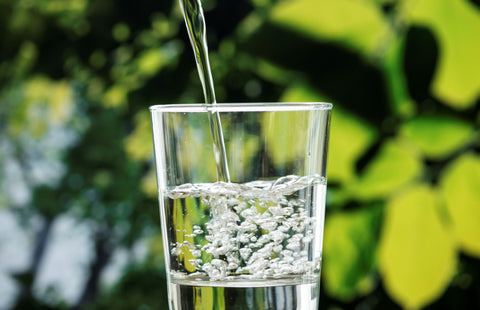Is it better to mix protein powder with milk or water?
There are many differences between water and milk. Colour, for one. Sorry, that was an awful joke. Let’s start again…
There are many differences between water and milk. Calories, fats, and where they come from are just the beginning. Add in the variable nutritional differences between milk and plant-based milks, and it can be difficult to choose what is the best to use for making a protein shake.
It stands to reason then, that the liquids you add will interact with your protein shake and will also be different. How you make your shakes, what you add, and the initial protein you choose can all have an effect on your workout, routine and goals.
Let’s look at water first, as it’s the simplest.
Here are the basics. Calories come from three areas of your diet: fats, carbs and proteins. Water contains none of these, and therefore contains 0 calories. This makes it the perfect liquid to add to a shake for those who are introducing a calorie deficit, trying to lose weight, or building lean muscle mass in particular.
It also doesn’t change the nutritional values of the shake in any way, so you can avoid what I’ve come to call ‘Macro Maths’ if that’s something you’re tracking as part of your routine. There are, however, trace amounts of minerals and vitamins in water (with quantities dependent on your region) which all counts towards your overall intake! Plus, it’s much less likely to cause bloating and stomach aches than dairy milk.
This means that water is certainly the best option for anyone who experiences allergies and intolerances or has digestive issues. However, water doesn’t add anything to a shake in terms of flavour, and can make a shake with a pretty thin texture, which not everyone will find palatable, so an alternative might be preferable.

What about dairy milk?
Well, let’s be honest, dairy milk is not water. It definitely has calories. In fact, a 250ml serving of milk can add up to 140 calories to your shake depending on its fat content. Anyone looking to bulk up should consider the higher calorie content of both dairy and plant-based milks. It also contains animal proteins, increasing the protein yield from a shake.
Dairy milk is a source of both healthy and unhealthy fats, which might mean that you need to work harder in order to see weight loss and lean muscle building,. It has also been linked to acne and the development of certain cancers.
People with allergies and intolerances should avoid dairy milk, and there is a possibility of dairy milk causing bloating, flatulence and other digestive issues, which is not a pleasant situation to be in after a workout! It is estimated that up to 15% of people in Europe are lactose intolerant, meaning that the body cannot properly digest the sugars in dairy, causing discomfort, pain and other digestive problems.

Finally, plant-based milks…
Okay, so this is where you’ll start to find a really great middle ground between water and dairy milk depending on the type of plant-based milk you choose.
You’ll still get the thicker texture, and the extra flavour profile, along with added nutritional value. Yes, there’ll be extra calories too, but most often this is fewer than the dairy alternative and with added vitamins and minerals. Plus, there’s that extra boost of protein, without the unhealthy fats.
Oat milk, for example, is around 120 calories for a 240ml serving which, whilst similar to dairy milk, is also hugely beneficial for added B vitamins, high in beta glucan which can help reduce your LDL cholesterol, a substance linked to heart disease. Now, there’s an added benefit you don’t get with dairy milk!
You’ll find that different plant-based milks have different formulations and fortifications. Almond milk, for example, typically contains more Vitamin E than oat milk, which usually contains more B vitamins. Of course, people with nut allergies should avoid nut-based plant milks!

What does this mean for your shake?
Ultimately, how you choose to make your shake is completely up to you. You could even go with half water, half plant-based milk if you want to add some texture without adding all the extras.
You’ll often find that the nutritional information listed on the product will contain values for mixing with both water and milk (plant-based milk, if the product is vegan or recommended for vegans), so that you can make an informed decision as to which liquid is right for you.
If you want to use water or even plant-based milks, then choosing a high quality plant-based protein with added BCAAs, vitamins and minerals to promote recovery is a good option to cover a lot of key nutritional areas.
If you want to be a little more adventurous with your protein shakes, then you could add protein powder to your morning coffee, create a hot protein shake or add it to different smoothies for breakfast.
Sources:
- https://www.healthline.com/nutrition/water-calories#plain
- https://www.healthline.com/nutrition/milk
- https://www.healthline.com/nutrition/oat-milk
- https://www.ncbi.nlm.nih.gov/pmc/articles/PMC2596709/
- https://www.ncbi.nlm.nih.gov/pmc/articles/PMC4574006/